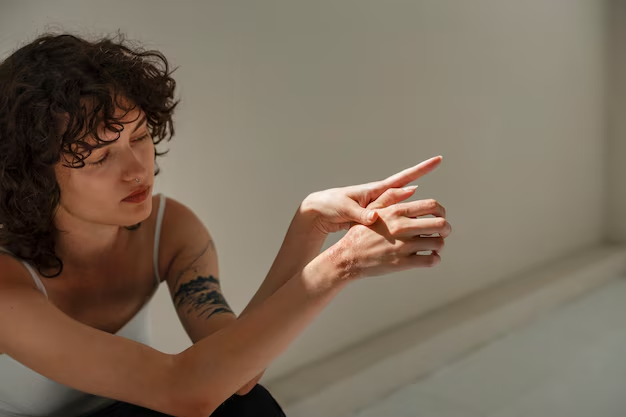Dealing with Infected Ear Piercings: An Essential Guide for Cleanliness and Care
Ear piercings have been a staple of personal expression and aesthetics for centuries. However, what starts as a simple beauty decision can sometimes be complicated by infections. If you're dealing with an infected ear piercing, knowing how to clean and care for it is crucial. Here's how you can manage an infected ear piercing safely and effectively.
Understanding Piercing Infections: The Basics
What Causes Ear Piercing Infections?
Infections can happen due to various reasons, including:
- Bacterial Contamination: Unclean tools or improper aftercare can introduce bacteria.
- Allergic Reactions: Some metals can cause allergic reactions, leading to infections.
- Inadequate Aftercare: Ignoring aftercare instructions increases infection risk.
- Physical Trauma: Yanking or sleeping on a new piercing can lead to complications.
Identifying an Infected Piercing
Recognize the signs early to prevent complications:
- Redness and Swelling: Initial irritation can escalate if not addressed.
- Pain and Tenderness: Persistent pain should not be ignored.
- Discharge: Yellow or green pus indicates an infection.
- Fever and Malaise: Severe infections might affect your whole body.
Steps to Clean and Care for an Infected Ear Piercing
1. Gather Appropriate Cleaning Supplies
To clean an infected piercing, you’ll need:
- Saline Solution: Preferably pre-made, available at pharmacies.
- Cotton Balls/Swabs: For applying the solution gently.
- Clean Hands: Always wash your hands before touching your piercing.
- Disposable Gloves: Optional for additional hygiene.
2. The Cleaning Process
Follow these steps to clean your infected ear piercing:
Hand Hygiene
- Wash Your Hands: Use antibacterial soap and dry with a clean towel.
Saline Solution Application
- Prepare the Saline Solution: If you’re making it at home, mix 1/4 teaspoon of non-iodized sea salt in one cup of distilled water.
- Apply the Solution: Use a cotton ball soaked in the saline solution. Gently clean around the piercing, being cautious not to disturb the jewelry.
Gentle Cleaning Technique
- Do Not Rotate the Jewelry: Avoid moving the jewelry as it can worsen the infection.
- Avoid Alcohol and Hydrogen Peroxide: These can irritate the piercing and delay healing.
3. Monitoring and Patience
- Regular Cleaning: Clean your piercing twice daily.
- Observe: Watch for changes. If symptoms persist or worsen, consult a healthcare professional.
- Be Patient: Infections can take time to heal.
Prevention Measures: Keeping Future Infections at Bay
Choosing the Right Piercer
- Qualified Professional: Always go to a licensed and experienced piercer.
- Clean Workspace: Ensure the parlor is clean, and the equipment is sterilized.
Jewelry Matters
- Hypoallergenic Materials: Opt for jewelry made from surgical steel, titanium, or gold.
- Avoid Cheap Metals: These can lead to allergic reactions and infections.
Proper Aftercare Practices
- Follow Piercer’s Instructions: Adhering to professional guidance helps in proper healing.
- Avoid Submersion: Keep the piercing dry, avoiding pools and hot tubs during initial healing.
- Be Gentle: Avoid physical trauma to the piercing site.
When to Seek Professional Assistance
Signs You Need Help
If the infection symptoms worsen or do not improve within a few days, consider reaching out to a healthcare professional.
Professional Intervention
- Antibiotic ointments or medications: Only as prescribed by a doctor.
- Advice on Jewelry Changes: If allergies are suspected, a professional can suggest alternatives.
Additional Considerations: What You Need to Know
Myths Versus Facts
Myth: Pain means it’s healing.
- Fact: Persistent pain often signifies an issue.
Myth: Cleaning less will help it heal faster.
- Fact: Regular cleaning is essential for healing.
Managing Upkeep
- Long-Term Care: After initial healing, regular cleaning is essential.
- Self-Check: Periodically check for any signs of irritation or discomfort.
Final Thoughts: Your Piercing, Your Responsibility
Taking responsibility for your piercing's health is essential. With the right knowledge and care, you can prevent infections or manage them effectively if they occur. Keep in mind, hygiene is your first line of defense, and when in doubt, professional consultation is invaluable. Enjoy your piercings, but prioritize your health.
Quick Tips for Managing Ear Piercing Infections
- 🧼 Clean Hands First: Always wash hands before handling your piercing.
- 🌊 Use Saline, Not Alcohol: Clean with sterile saline solution twice a day.
- 📞 Seek Help if Needed: Contact a professional if symptoms worsen.
- 🔍 Choose Hypoallergenic Jewelry: Reduces risk of allergic reactions.
- ⏳ Be Patient: Healing takes time, so maintain your cleaning regime.
This approach ensures a safe and clean process that promotes healing and preserves your unique style.

Related Articles
- Are Ear Infections Contagious
- Can Adults Get Ear Infections
- Can Amoxicillin Treat Ear Infections
- Can An Ear Infection Cause a Sore Throat
- Can An Ear Infection Cause Diarrhea
- Can An Ear Infection Cause Head Pain
- Can An Ear Infection Cause Jaw Pain
- Can An Ear Infection Cause Teeth To Hurt
- Can An Ear Infection Cause Vomiting
- Can An Ear Infection Heal On Its Own
